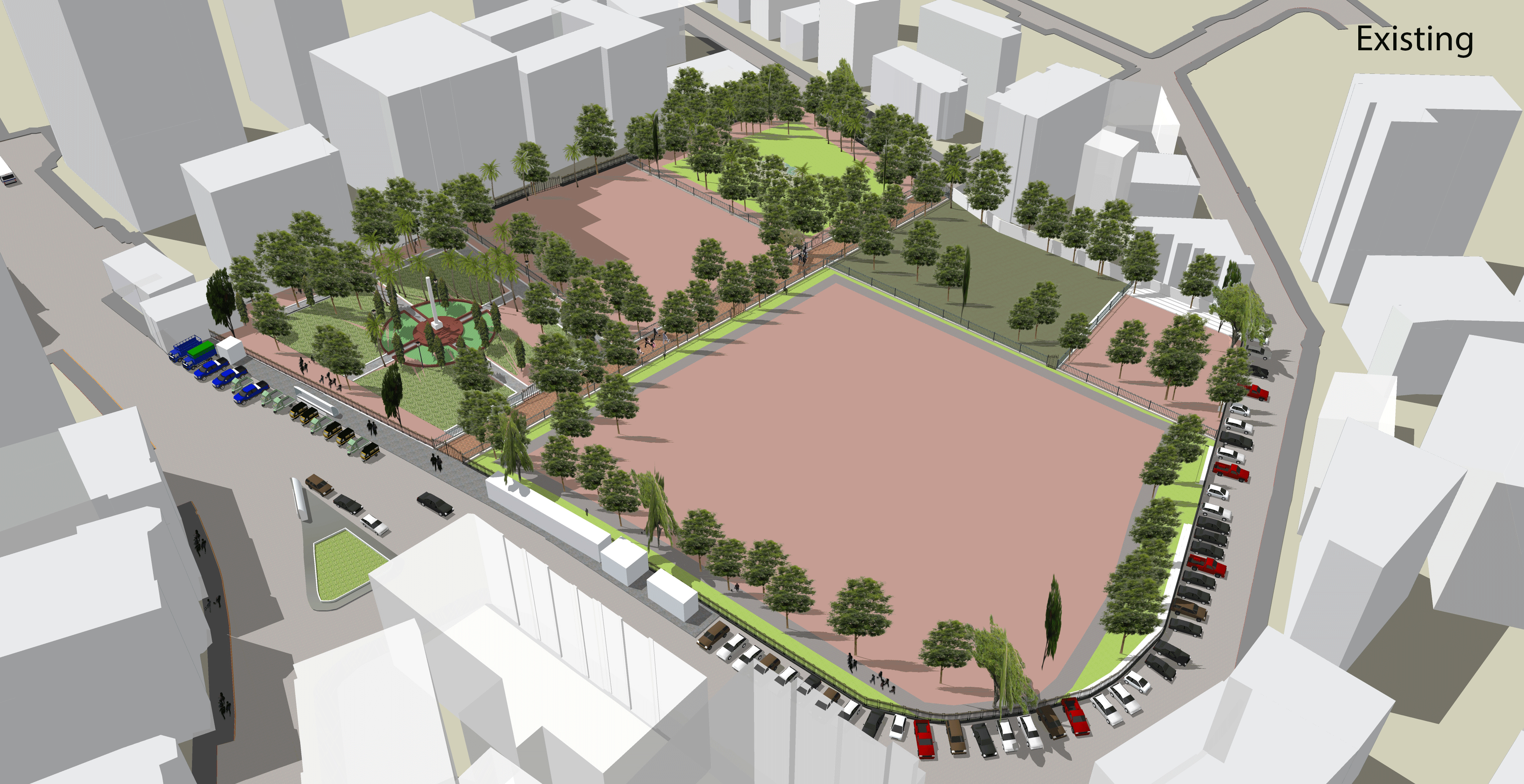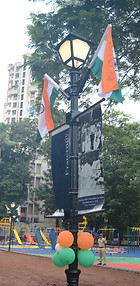Freedom Trail Mumbai - August Kranti Maidan and its Surrounds

Image source: The Wire

8th August 2022, marked the 80th year of the Quit India Movement which was initiated at August Kranti Maidan, formally known as the Gowalia Tank Maidan. The Maidan was also the venue of the first Congress in 1885 and has several historic sites and structures of national importance in its surrounds.
Since Independence, August Kranti Maidan has been used as a recreational ground. However, in 1972, the Maidan was divided into 6 smaller sections, separated by fences including a children's play area, seating area for senior citizens and a section with the Gandhi Memorial Column which was erected in 1970.
Over the years, several encumbrances around the Maidan and the internal fences made the ground partially accessible. Further, only 60m out of the total 550m long periphery of the Maidan was visually accessible, among other issues which called for the restoration of the lost identity of the Maidan, an improvement in the visitor experience and upgradation of its physical infrastructure in the present day.
Image source: The Print
Evolution of the Maidan

1960
In the 1960s, the Maidan was one large unified open space; Map sourced by BMC from archives department

1972
The Maidan was divided to create space for the Gandhi Memorial and Nana-Nani Park in 1972; Map sourced by BMC from archives department

2021
In 2021, when the proposal for the heritage conservation of August Kranti Maidan was being conceptualised, the Maidan was sub-divided into six parts - separated by fences; As per total station survey, 2021
Freedom Trail Mumbai
To recognise and reinstate the identity of several sites and structures of national historic significance which are located near the Maidan, the proposal for the heritage conservation of August Kranti Maidan evolved into a larger goal, which was the setting up of a 2.5 km long Freedom Trail Mumbai.
These area development initiatives for the Maidan surrounds will be started after the restoration of the Maidan is completed including directional signage, information plaques and footpath markers which will all be used to describe the freedom movement.




Heritage Conservation of August Kranti Maidan
Existing situation analysis of the Maidan in 2021 brought forth several initiatives which could be taken up to improve the visitor experience of the Maidan. Under the Freedom Trail Mumbai initiative, the heritage conservation of the Maidan would focus on improving the visibility to the Maidan, increase its physical accessibility and unification of its sub-divisions. Creation of a permeable mud-macadam walking path along its periphery would allow visitors of all age groups to walk comfortably. All encumbrances around the periphery would be removed and the external fence and gates would be restored.
Read about the process in detail below:
Existing situation analysis

Reduced visual access due to parking along the Maidan periphery, August Kranti Road

BEST canteen long the front boundary of the Maidan

Sulabh Shauchalay along front boundary of the Maidan

External fences broken and dilapidated conditon

Internal fences create visual and physical barrier

Existing children's play area in a state of despair
Aim
To restore a culturally and historically significant site of national importance, which was an important milestone in India’s freedom movement.

Discussions with various departments and higher officials of MCGM


On-site discussions with AMC(ES)
The Proposal
The proposal was formulated after studying old CTS sheets and other official records and documents available. Before the execution process started on-site, several discussions were held with various departments and higher officials of MCGM. Considering the historic importance of the site, prior permissions and suggestions were also taken from the Archaeological Department and MHCC during the preparation of the proposal, plans, and site specific drawings. Issues and present-day needs of various visitors of the Maidan were deliberated upon by the UCM team, senior officials and D-Ward. Preparation of site-specific drawings, plans and design details was done after the analysis of the existing situation of the Maidan and its surrounds through a comprehensive total station survey.

Aerial visualisation of the Maidan

Inauguration Day


Inauguration Day
Completed works
The proposal under Heritage Conservation of August Kranti Maidan is completed including the unification of the different parts of the Maidan, restoration of the peripheral fence and gates, upgradation of the children's play area and the heritage basalt stone works.
Gallery of site progress:




Completed works

Reduced visual access due to fence

Opening up the view towards the memorial

Old fences creating visual and physical barrier

Opening up of views and access to Maidan

Relocation of existing Children’s Play area

Removal of fence and inclusion and conversion of Children’s Play Area to Maidan












